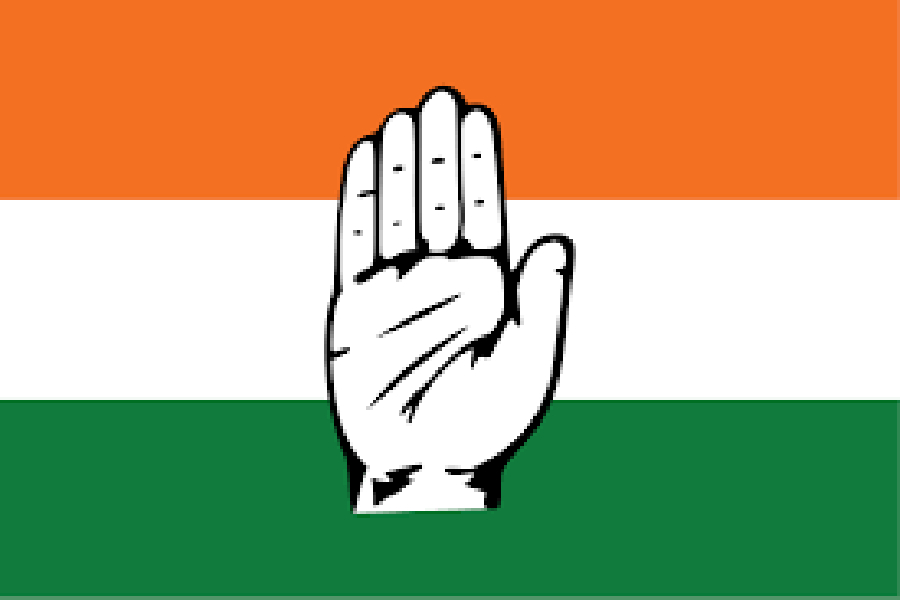The Congress on Sunday alleged that Prime Minister Narendra Modi has caused an "unprecedented decline" in worker wages adjusted for price rise and said that an INDIA coalition government will return the country to a higher growth trajectory.
Congress general secretary Jairam Ramesh said multiple data sources, including the Modi government's own official statistics, are unanimous in showing the simple fact that workers can buy less today than they could 10 years ago.
A combination of slow wage growth and back-breaking inflation has caused an unprecedented decline in real wages, he said in a statement.
"Labour Bureau's Wage Rate Index (Government Data): Between 2014 and 2023, real wages for labourers have stagnated, with clear declines in real wages in Modi-II," he said.
Ramesh also pointed out that the Ministry of Agriculture's Agricultural Statistics said that under former prime minister Manmohan Singh, real wages for agricultural labourers grew at 6.8 per cent each year.
"Under PM Modi, real wages for agricultural labourers declined by -1.3 per cent each year," he said.
"Periodic Labour Force Survey Series (Government Data): Average real earnings over time have stagnated between 2017 and 2022 across all employment types - salaried workers, casual workers, and self-employed workers," he said in a statement.
Citing Center for Labour Research and Action data, Ramesh said real wages of brick kiln workers have stagnated or declined between 2014 and 2022.
Brick kilns involve intensive labour and are a low-paying work of last resort for India's poorest, he pointed out.
"Stagnant wages underpin the economy's poor performance under PM Modi: Real wages for India's people have stagnated since the PM came to office," the Congress leader said in the statement.
"Stagnant real wages have dragged down consumption growth as revealed by the NSSO's Consumption Expenditure Survey which showed a decline in rural consumption for the first time in almost 50 years (and which the Modi Sarkar tried to suppress)," he said.
With slowing consumption growth and deepening fear, the private sector no longer has an incentive to invest in the economy, Ramesh argued.
"Investment in India has dropped to historic low levels, threatening our long-term growth: Investment as % of GDP (10-year average) was 33.4% under the UPA but just 28.7% under Modi. FDI as % of GDP rose from 0.8% in 2004 to 1.7% in 2014 under Manmohan Singh's stewardship. It has fallen to just 1.5% of GDP as of 2022," the statement read.
He further pointed out that manufacturing as a percentage of GDP (10-year average) fell from 16.5 per cent in UPA to 14.5 per cent under Modi and the gross fixed capital formation (GFCF) in India, or the total investment in fixed assets, averaged 32 per cent for the 10 years of Manmohan Singh, while the GFCF under Modi has been below 29 per cent for 10 years.
"Together, all these factors are dragging down economic growth and causing an unemployment crisis," Ramesh said.
"In the economy, all good things go together. The UPA performed strongly on real wages for workers, private-sector investment, and consumption growth, enabling 7.5% real GDP growth rates, compared to the Modi Sarkar's 5.8% average," he said in the statement.
"On June 4, when the INDIA coalition comes to power, we will return India to a higher growth trajectory," Ramesh asserted.
Tagging his statement, he said on X that workers today can buy less today than they could 10 years ago.
"The Modi Sarkar's Dus Saal Anyay Kaal have been defined by: Slow wage growth. Back-breaking inflation. Prime Minister Modi has caused an unprecedented decline in worker wages adjusted for price rise," Ramesh said.
Except for the headline, this story has not been edited by The Telegraph Online staff and has been published from a syndicated feed.











